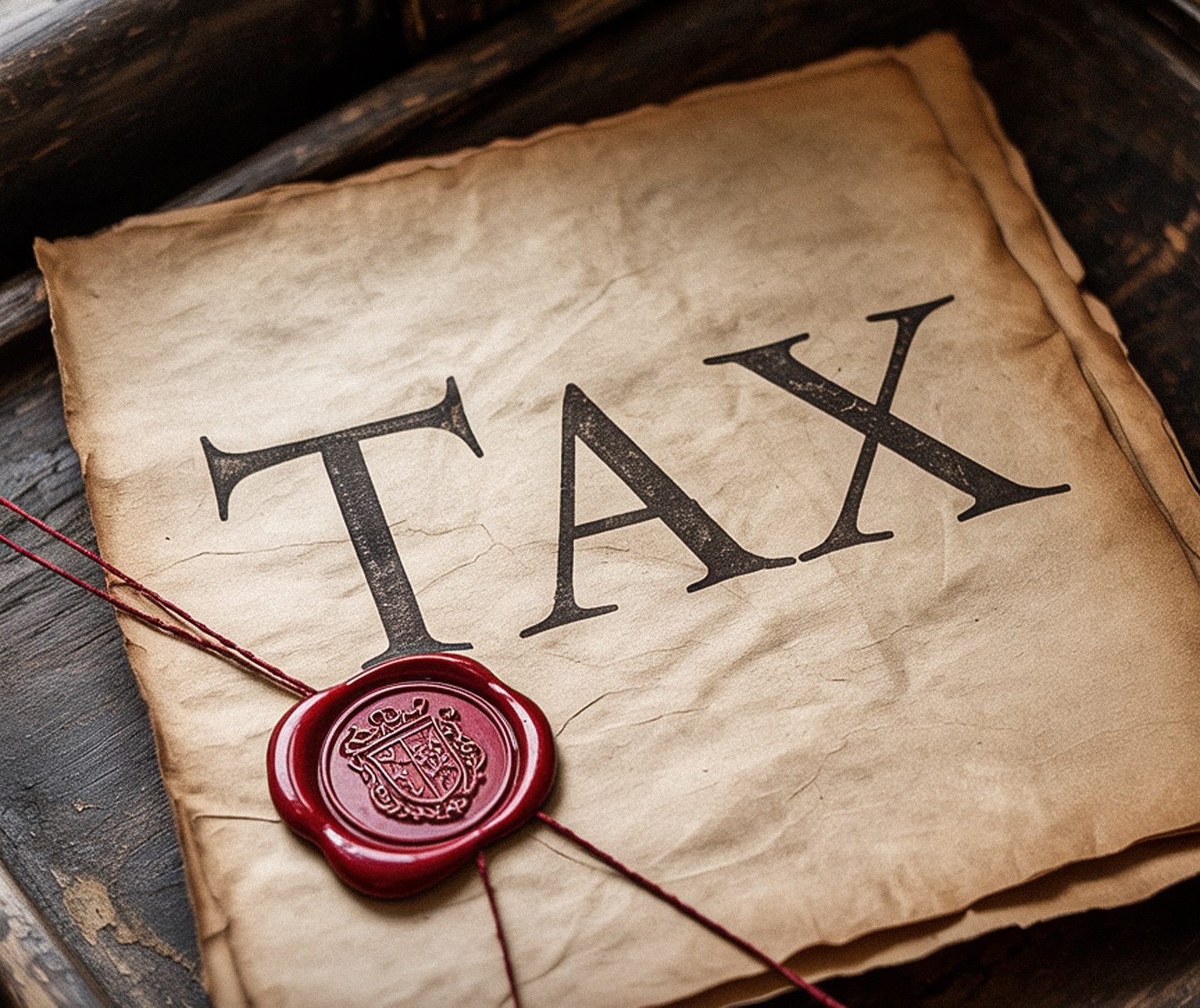The Weirdest Tax That Ever Existed
History has a strange sense of humor. Over the centuries, governments have taxed people for the most bizarre reasons, and sometimes, it feels like they were making it up as they went. Forget income tax or property tax—those are too normal. What if I told you there was a time when simply growing a beard or having windows in your house meant paying extra? It sounds ridiculous, but it really happened. The deeper I dug into the world of weird taxes, the more fascinated I became. Each tax reveals a snapshot of the time it was created—what societies valued, feared, or wanted to control. Some of these taxes were clever loopholes for governments to raise funds. Others were just…unhinged.
1100s – Medieval Cowardice Tax

Let’s start with one of the oldest I came across—the Medieval Cowardice Tax from the 1100s. Picture this: knights in armor were expected to go to battle. But what if you didn’t want to fight? Maybe you weren’t cut out for war, or maybe you just had plans that weekend. In medieval England, you could pay a tax—literally a coward’s fee—to avoid war duty. It was called scutage, and it let landowners pay money instead of serving in the military. In some ways, it was genius. The monarchy got funds to hire professional soldiers, and the reluctant nobleman got to stay home in one piece. Still, the name alone tells you how society viewed it: a tax for being afraid.
1588 – Playing Cards Tax
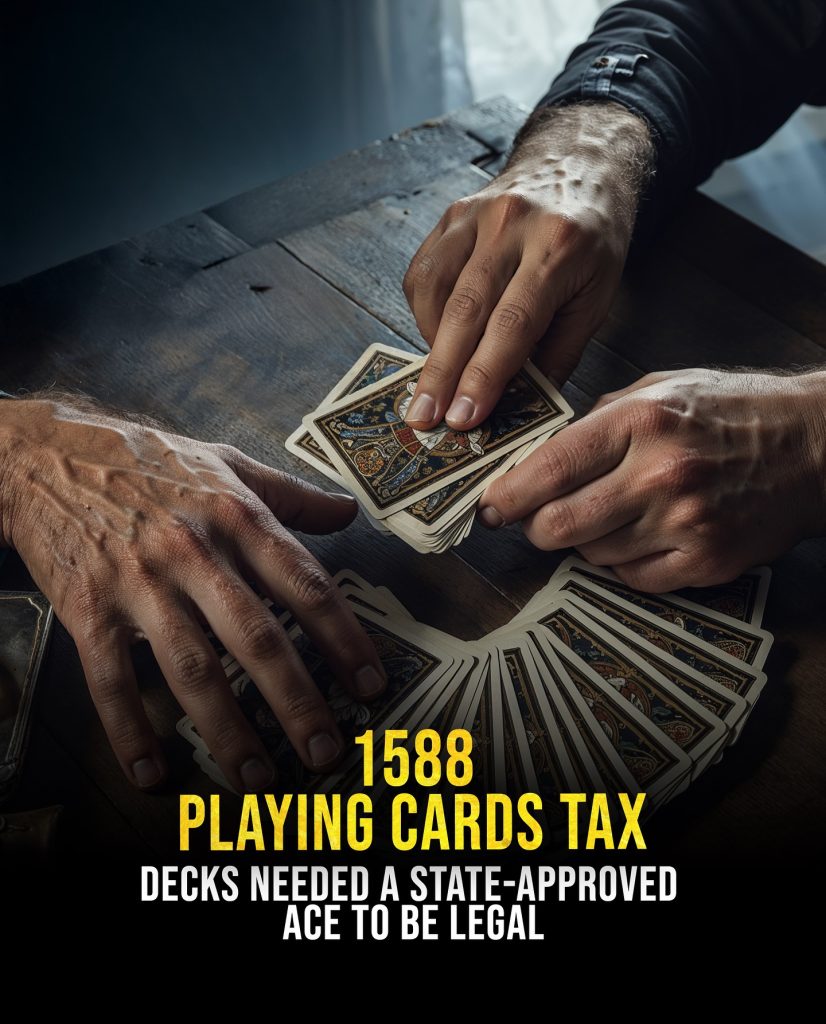
Fast forward to 1588, and we find the Playing Cards Tax in England. Yes, playing cards were taxed—but not just any part of the deck. The ace of spades needed a state-issued stamp to prove the tax had been paid. No stamped ace? Your whole deck was illegal. That meant printing companies had to pay for this special card, and counterfeit aces became a real issue. In fact, forgery of the stamped ace was a serious offense, punishable by death at one point. Imagine being hanged because your deck of cards didn’t have a government-approved symbol on it. Wild.
1712 – Soap Tax
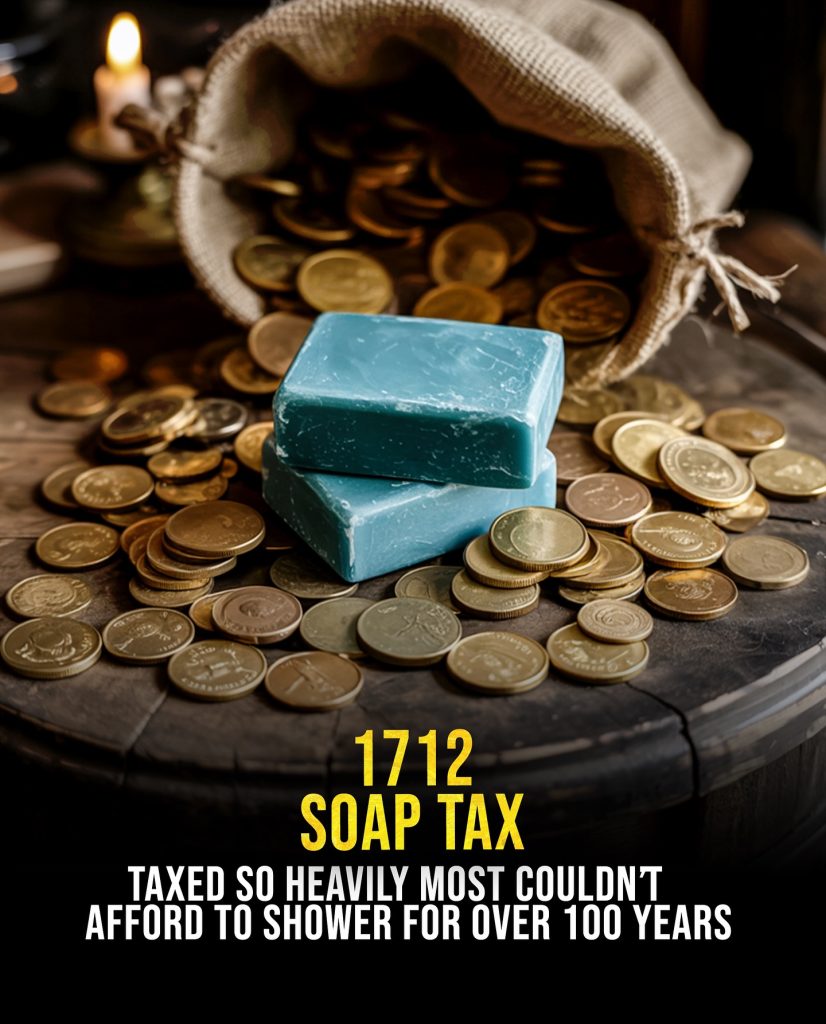
Then there’s the notorious 1712 Soap Tax, which is probably the most disgusting result of a policy I’ve ever read about. The tax made soap so expensive that many people in Britain simply stopped buying it. Washing regularly became a luxury, and some reports say people went generations—entire family lines—without the habit of daily bathing. Cleanliness became a sign of wealth. Poorer folks either made their own soap under risky conditions or just didn’t bother. Think about that: a tax so punishing it changed the hygiene habits of a whole nation for over a century.
1712 – Wallpaper Tax
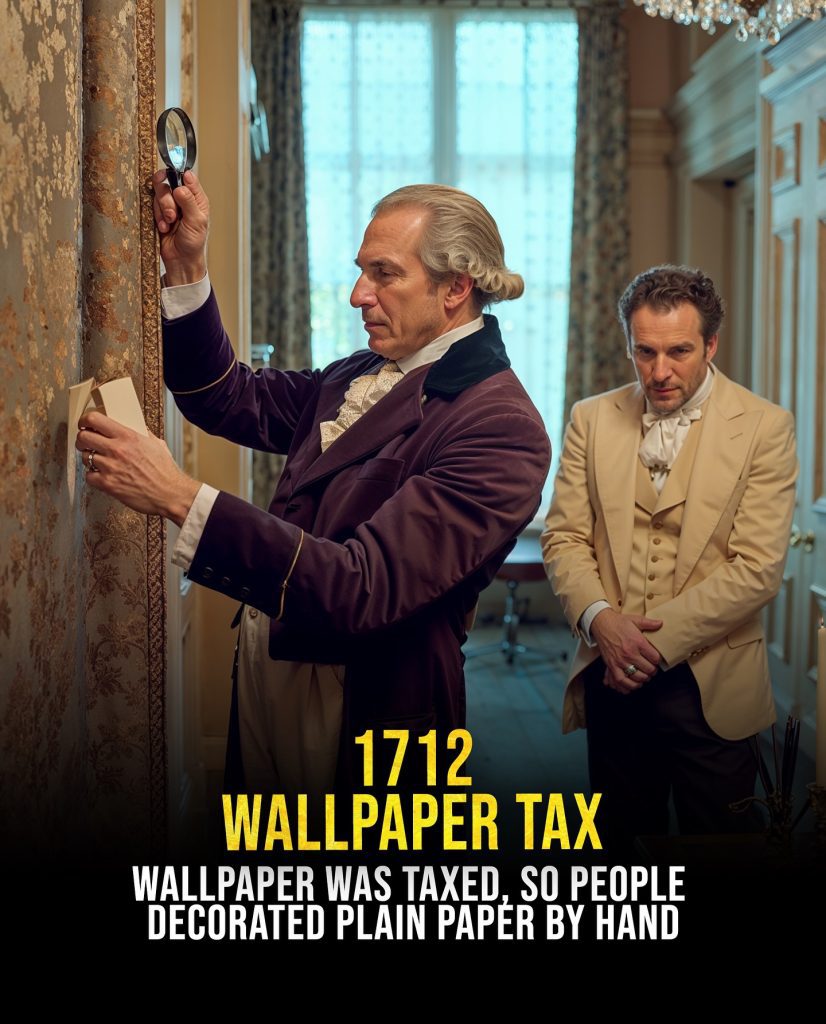
Also in 1712, the British government introduced the Wallpaper Tax. Decorative wallpaper had become trendy among the upper classes, so lawmakers decided to cash in. The tax was based on printed patterns, so people got creative. To avoid the charge, they bought plain wallpaper and hired artists to paint patterns on it by hand. It didn’t last forever—by the 1800s, wallpaper taxes were gone—but it’s such a perfect example of human ingenuity bouncing back against regulation.
1696 – Window Tax
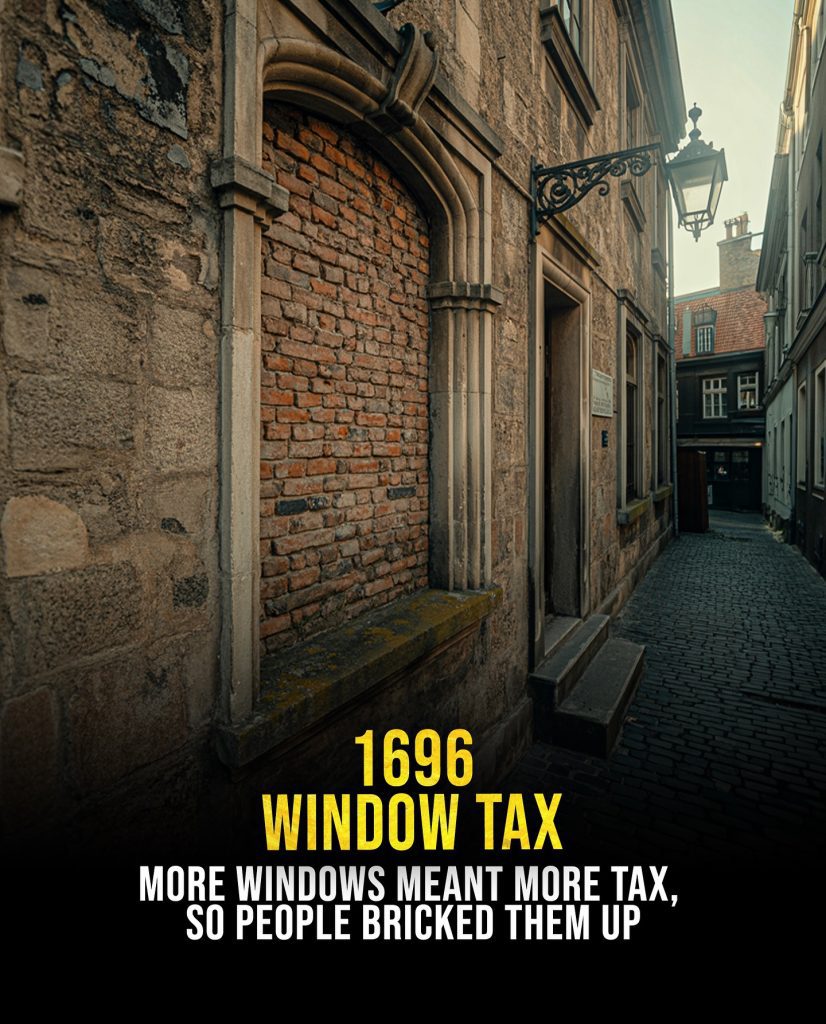
Now, let’s talk about windows. Yes, windows. In 1696, a Window Tax was introduced in England, taxing homeowners based on how many windows their house had. More windows meant more natural light, which was considered a luxury, so it was taxed like one. But people didn’t want to pay more, so many of them bricked up their windows to lower their tax bill. This bizarre policy actually influenced architecture—look at older buildings in the UK, and you might see strange blank patches where windows used to be. The term “daylight robbery” is even rumored to have come from this era, though that part’s debated.
1698 – Beard Tax

By 1698, Russia got in on the madness with a Beard Tax, courtesy of Peter the Great. Determined to modernize his country in line with Western Europe, Peter introduced the tax to discourage facial hair, which he saw as old-fashioned. Men who wanted to keep their beards had to carry a special token proving they’d paid the tax. Imagine flashing a beard license at a guard just to keep your whiskers. And yet, men did it—some even treasured the tokens as status symbols.
1821 – Bachelor Tax

One of the strangest and most oddly specific taxes came in 1821: the Bachelor Tax. In several countries, including England, Russia, and even parts of the U.S., unmarried men had to pay for the crime of being single. The logic was that marriage was good for society—it meant stability, family, and order. So if you weren’t doing your part, you paid up. It didn’t last long in most places, but it shows just how far governments would go to shape behavior—and raise revenue.
Looking at all of these, it’s clear taxes were never just about money. They were about control, power, and sometimes even punishment. Each weird tax reflects the quirks of the society that invented it. And while many of these seem laughable now, they all served serious political and economic purposes at the time. Whether it was getting out of a fight, hanging on to your facial hair, or simply playing a card game, the government always found a way to sneak in a fee.
I don’t know what’s more surprising—that these taxes existed, or that they actually worked. People paid them. They altered their homes, hygiene, and habits to comply. It makes you wonder: which of today’s taxes will future generations look back on and laugh at? Because one thing’s for sure—when it comes to taxing human behavior, history has never run out of creativity.

